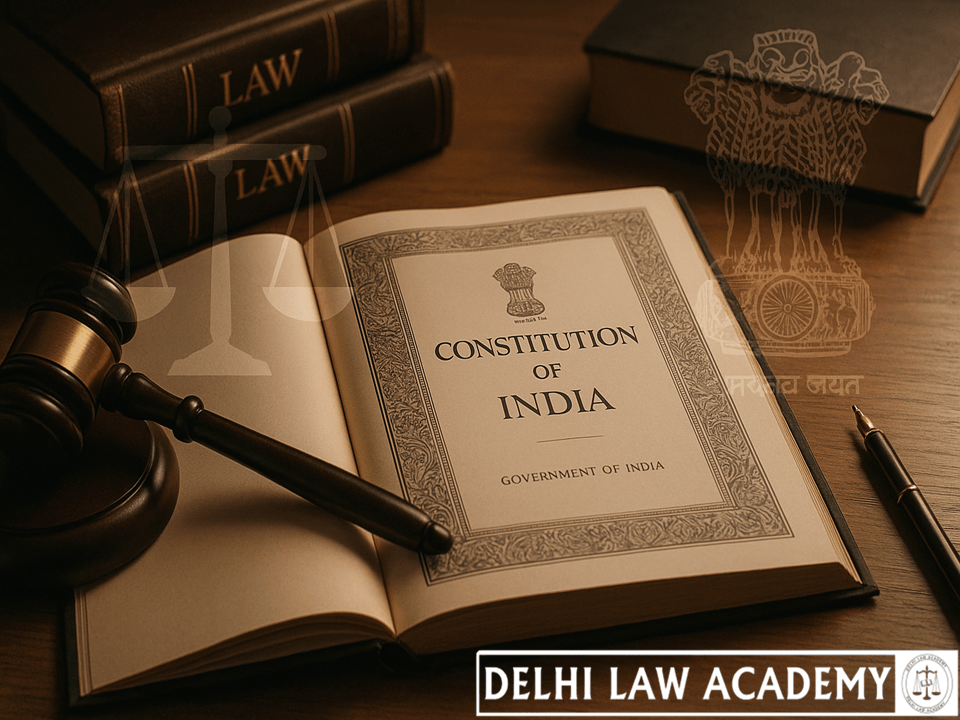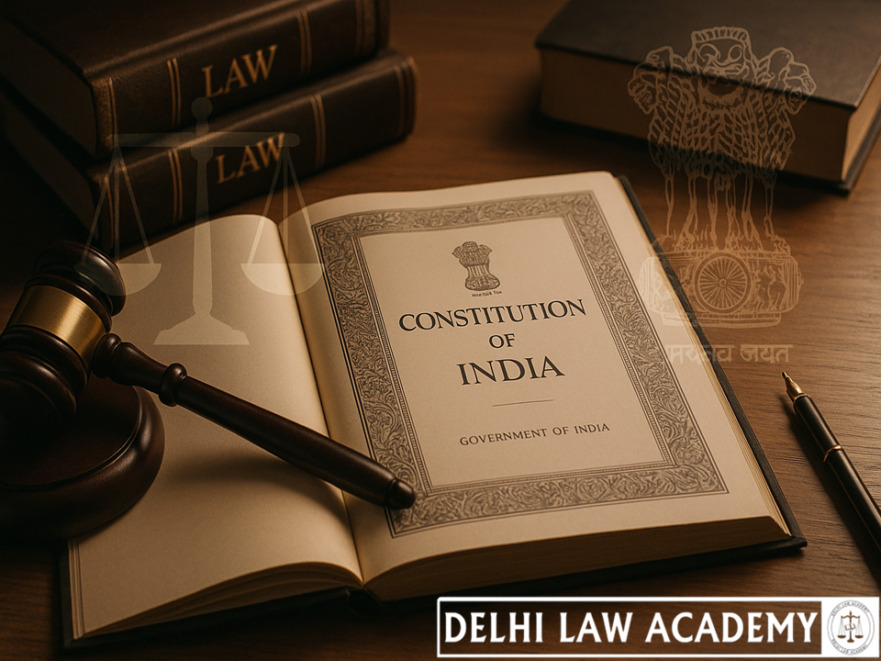
📌 Key Topics in This Blog
- Fundamental Rights: Protection and Sanctity
- Scope and Effect of Article 13
- Doctrine of Eclipse
- Doctrine of Severability
- Doctrine of Waiver
- Important SC Judgments Referenced
📜 Fundamental Rights: Scope and Doctrines under Article 13
FUNDAMENTAL RIGHTS: Protection and Sanctity
Article 13 of our Constitution specifically protects Fundamental Rights from legislative and executive encroachment. Legislative and executive action in violation of Fundamental Rights is declared null and void by this Article through the following provisions:
Clause (1)
- All existing laws shall be void to the extent they are inconsistent with this Part
Clause (2)
- State shall not make any law which takes away or abridges rights conferred by this Part
- If any such law is made, it shall be void to the extent it takes away or abridges these rights
Scope and Effect of Article 13
- All pre-Constitutional laws are void to the extent of inconsistency with Fundamental Rights
- All post-Constitutional laws shall be void to the extent they take away or abridge Fundamental Rights
🌓 Doctrine of Eclipse
Eclipse occurs when one object overshadows the other. This doctrine is applied when any law violates a fundamental right. The fundamental right shall overshadow this law and make it ineffective but not void in toto. It can revive if the shadow cast by the fundamental right is removed.
Doctrine of Eclipse relating to an existing law:
- The existing law became void under article 13(1) “to the extent of inconsistency”.
- The law became void not in toto or for all purposes or persons, but only “to the extent of such inconsistency”.
- Such law existed for all past transactions and enforcement of rights and liabilities accrued before the date of the Constitution.
- The law continued in force for persons who could not claim the fundamental right.
- The true position is that the impugned law became eclipsed, for the time being, by the fundamental right.
- All laws, existing or future, inconsistent with Part III are rendered void “to the extent of such inconsistency”.
- Such laws existed for pre-Constitution rights and liabilities and remained operative against non-citizens.
- It is only against citizens that they remained dormant.
Source: Bhikaji Narain Dhakras v. State of MP [1955 SC]
📄 Doctrine of Severability
When a statute is in part void, it will be enforced as regards the rest, if that is severable from what is invalid. This doctrine rests on the presumed intention of the legislature that the valid parts should remain operative even if some parts are void.
Rules of construction to determine severability:
- The legislature’s intention is the determining factor.
- If valid and invalid provisions are inextricably mixed, the whole Act fails; if separable, valid part is upheld.
- If all provisions form a single operative scheme, invalidity of part causes failure of whole.
- If remaining valid parts are truncated or materially different, the Act is rejected entirely.
- Separability does not depend on sectioning; substance over form.
- If enforcement requires modifications, the whole Act is struck down.
- Legislative intent can be determined by history, object, title, and preamble.
Source: M. D. Chamarbaugwalla v. Union of India [1957 SC]
⚖️ Doctrine of Waiver
Waiver of a right means relinquishment of that right by the individual.
- No waiver is allowed for fundamental rights, including Article 14 and others under Part III.
- Constitution makes no distinction between individual and public rights; fundamental rights serve public policy.
- The doctrine of waiver does not apply to provisions enacted as a matter of Constitutional policy.
Source: Basheshar Nath v. Commissioner of Income Tax [1959 SC]
📚 Continue Your Constitution of India Preparation
Don’t stop here! Strengthen your knowledge of the Fundamental Rights with our other related blogs:
📘 Stay Ahead with Delhi Law Academy!
Get access to free monthly current affairs, read our insightful blogs,
and explore free study resources prepared by experts at DLA Jaipur. 🚀
❓ Frequently Asked Questions on Fundamental Rights & Article 13
Contact us
📍 Delhi Law Academy – Jaipur Branch
6C, Tower 2, Coaching Hub, Pratap Nagar, Jaipur – 302033
📞 Phone:
+91 9911916552
+91 8447285606
✉️ Email:
contactus@delhilawacademy.com

